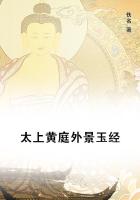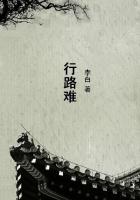I saw little of Dora Harris at this time.Making no doubt that she was enjoying her triumph as she deserved, I took the liberty of supposing that she would hardly wish to share so intimate a source of satisfaction.I met them both several times at people's houses--certain things had apparently been taken for granted--but I was only one of the little circle that wondered how soon it might venture upon open congratulations.The rest of us knew as much, it seemed, as Edward Harris did.Lady Pilkey asked him point-blank, and he said what his daughter found to like in the fellow the Lord only knew, and he was glad to say that at present he had no announcement to make.Lady Pilkey told me she thought it very romantic--like marrying a newspaper correspondent--but I pointed to a lifelong task, with a pension attached, of teaching fat young Bengalis to draw, and asked her if she saw extravagant romance in that.
They wrote up from Calcutta that they would like to have a look at Armour before ****** the final recommendation, and he left us, Iremember, by the mail tonga of the third of June.He dropped into my office to say goodbye, but I was busy with the Member and could see nobody, so he left a card with 'P.P.C.' on it.I kept the card by accident, and I keep it still by design, for the sake of that inscription.
Strobo had given up his hotel in Simla to start one in Calcutta.It never occurred to me that Armour might go to Strobo's; but it was, of course, the natural thing for him to do, especially as Strobo happened to be in Calcutta himself at the time.He went and stayed with Strobo, and every day he and the Signor, clad in bath-towels, lay in closed rooms under punkahs and had iced drinks in the long tumblers of the East, and smoked and talked away the burden of the hours.
Strobo was in Calcutta to meet a friend, an Austrian, who was shortly leaving India in the Messagerie Maritimes steamer Dupleix after agreeable wanderings disguised as a fakir in Tibet; and to this friend was attached, in what capacity I never thought well to inquire, a lady who was a Pole, and played and sang as well as Strobo fiddled.I believe they dined together every night, this precious quartet, and exchanged in various tongues their impressions of India under British control.'A houri in stays,' the lady who was a Pole described it.I believe she herself was a houri without them.And at midnight, when the south wind was cool and strong from the river, Strobo and Armour would walk up Chowringhee Road and look at the red brick School of Art from the outside in the light of the street lamps, as a preliminary to our friend's final acceptance of the task of superintending it from within.
We in Simla, of course, knew nothing of all this at the time; the details leaked out later when Strobo came up again.I began to feel some joyful anxiety when in a letter dated a week after Armour's arrival in Calcutta, the Director of Public Instruction wrote to inquire whether he had yet left Simla; but the sweet blow did not fall with any precision or certainty until the newspaper arrived containing his name immediately under that of Herr Vanrig and Mme.
Dansky in the list of passengers who had sailed per S.S.Dupleix on the fifteenth of June for Colombo.There it was, 'I.Armour,' as significant as ever to two persons intimately concerned with it, but no longer a wrapping of mystery, rather a radiating centre of light.
Its power of illumination was such that it tried my eyes.I closed them to recall the outlines of the School of Art--it had been built in a fit of economy--and the headings of the last Director's report, which I had kindly sent after Armour to Calcutta.Perhaps that had been the last straw.
The real meaning of the task of implanting Western ideals in the Eastern mind rose before me when I thought of Armour's doing it--how they would dwindle in the process, and how he must go on handling them and looking at them withered and shrunken for twenty-odd years.
I understood--there was enough left in me to understand--Armour's terrified escape.I was happy in the thought of him, sailing down the Bay.The possibilities of marriage, social position, assured income, support in old age, the strands in the bond that held him, the bond that holds us all, had been untwisting, untwisting, from the third of June to the fifteenth.The strand that stood for Dora doubtless was the last to break, but it did not detract from my beatitude to know that even this consideration, before the Dupleix and liberty, failed to hold.
I kept out of Miss Harris's way so studiously for the next week or two that she was kind enough in the end to feel compelled to send for me.I went with misgivings--I expected, as may be imagined, to be very deeply distressed.She met me with a storm of gay reproaches.I had never seen her in better health or spirits.My surprise must have been more evident than I supposed or intended, for before I went away she told me the whole story.By that time she had heard from Ceylon, a delicious letter with a pen-and-ink sketch at the top.I have it still; it infallibly brought the man back to me.But it was all over; she assured me with shining eyes that it was.The reason of her plainly boundless thankfulness that Armour had run away from the School of Art did not come to the surface until I was just going.Then I gathered that if he had taken the post she would have felt compelled, compelled by all she had done for him, to share its honours with him; and this, ever since at her bidding he had begun to gather such things up, was precisely what she had lost all inclination to do.
We were married the following October.We had a big, gorgeous official wedding, which we both enjoyed enormously.I took furlough, and we went home, but we found London very expensive and the country very slow; and with my K.C.S.I.came the offer of the Membership, so we went back to Simla for three perfectly unnecessary years, which we now look back upon with pleasure and regret.I fear that we, no more than Ingersoll Armour, were quite whole-hearted Bohemians; but I don't know that we really ever pretended to be.














